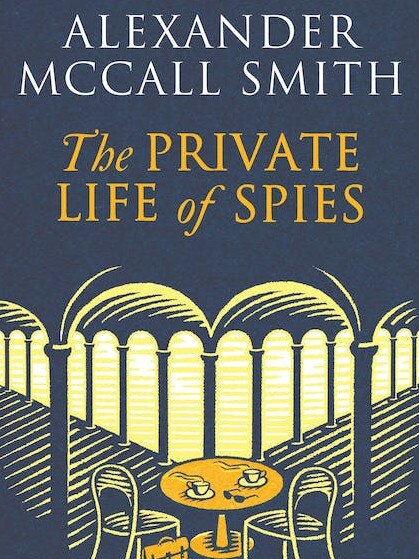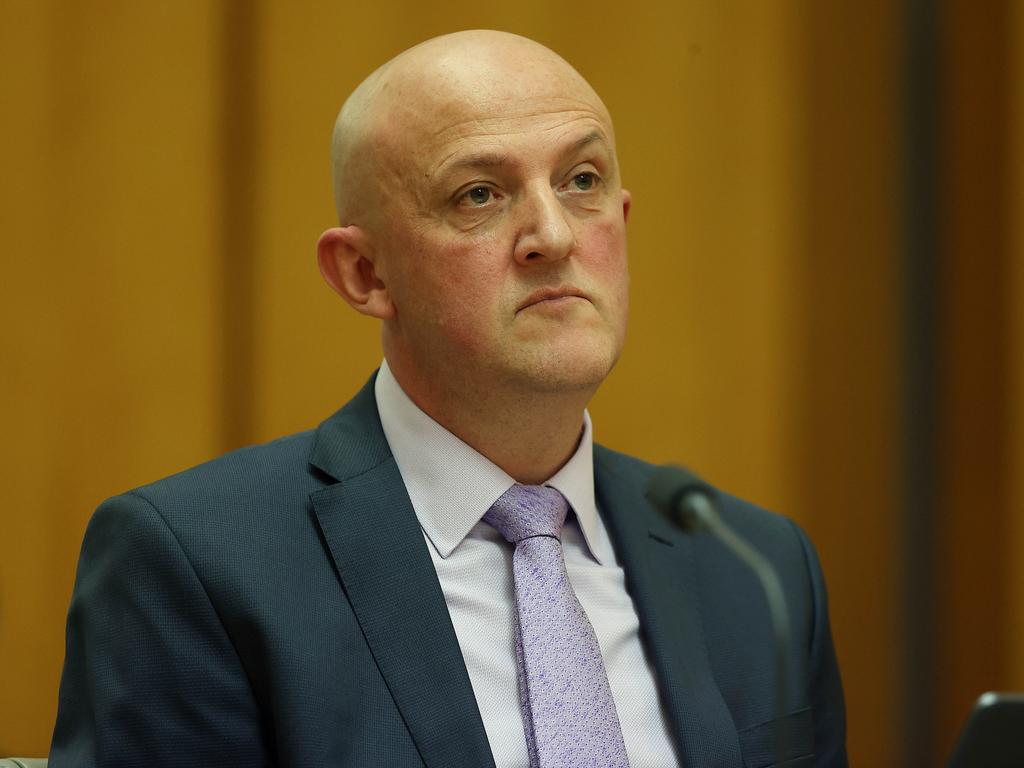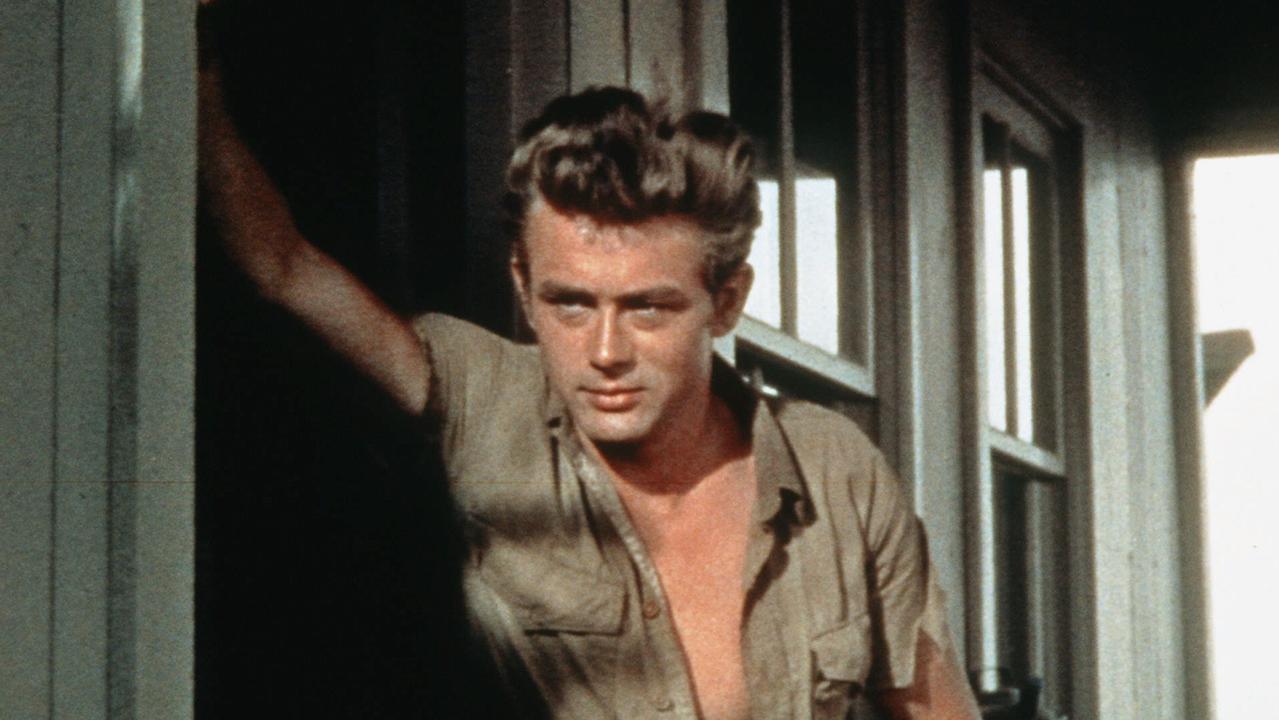The Private Life of Spies review: Why ASIO boss Mike Burgess needs this book
Sometimes a book suits the times, but there are times when unexpected events suit the book. ASIO boss Mike Burgess could do worse than pick up a few copies of this delightful read.

Sometimes a book suits the times, but there are times when unexpected events suit the book. The latter must be the case for Hachette’s Australian release of Alexander McCall Smith’s delightful collection of short stories, The Private Life of Spies.
When they dispatched a copy for review how could the publishers have possibly known, within hours of the book arriving in my letterbox on a surf beach east of Hobart, that the expulsion of foreign spies would be making headline news in Australia?
McCall Smith is an engaging writer whatever the subject may be. He has written more than 60 books and sold more than 50 million, in almost as many languages, and is best known for the African crime series, The No. 1 Ladies’ Detective Agency. Suffice it to say he is prodigious in output, reportedly writing three thousand words every day and a lot more when he is at home in Edinburgh.
I read that he writes 1000 words per hour, which must exceed most literary speed limits, and, also, that he once lived round the corner from Ian Rankin and J.K. Rowling.
Some might find all of that a touch annoying. But there’s nothing not to like about Alexander McCall Smith when you read his latest collection of six short stories on the business of spying. These are a half dozen beautifully shaped, delicious morsels, which I devoured even faster than Alexander could write them.
Intriguingly, an author’s note prefaces the book – “These stories are part fiction and part non-fiction” – along with enough bibliography so that (appropriate to the genre) we really don’t know what to believe.
The first of the collection, Nuns and Spies, incorporates what the author describes as a “common legend of World War II — that German spies were dropped into England dressed as nuns.”
The idea of nuns in parachutes remains most unlikely but in McCall Smith’s hands the story is both funny and believable.
The spy is a young German conscript Conradin Muller whose misfortune is to speak perfect idiomatic English. He is essentially a pacifist and a coward. When a Nazi Colonel tells him that failing to support the war effort …
“Would be very unwise. I take it you understand me?”
Conradin swallowed hard. He had understood only too well.
“What do you want me to do?”
So begins a comedy of misadventure in which the reluctant spy lands in the wrong nunnery but is accepted and never sends back a single report to Germany. Instead, he works in the convent piggery where he makes himself indispensable.
Each of McCall Smith’s spy stories is about 6000 words. We might even surmise that’s around six hours of the author’s time.
But I wouldn’t want to spoil any of them for you. In the great tradition of the best English short stories, despite their brevity, they are full of character and detail, ending not necessarily with a twist but always satisfactorily.
Australia’s top spy Mike Burgess last week announced that enemy espionage was worse today than “at any time in Australia’s history”.
ASIO had uncovered and expelled “a hive of spies”. In literary spy genre “nest” as in spiders or rats is the usual collective.
But for the director-general of ASIO “a hive” better described the level of organisation and the sheer busyness of Australia’s highly trained enemy spies, “Deliberately calculated to undermine Australia’s democracy, sovereignty and values,” Burgess said.
Happily, the evil designs the ASIO chief attributes to the spies sent to Australia by you-know-who are mostly absent among the oddball and dilettante protagonists in The Private Life of Spies. The German spy Conradin is a conflicted innocent. He is in the field, but he never wanted to be a combatant. “He had never accepted the venom of his times; he had done his best to keep away from that poison. But he was nonetheless engaged in a gross deceit every time that he wore his nun’s habit.”

As soon as he had landed on English soil he abandoned his mission, dropping his radio kit in a mill pond.
“There was no going back now. He would simply see what happened. If they shot him, they shot him – so be it.
“For the moment, he would continue to be a nun, which, on balance, was far better, he decided, than being a spy.”
Another tale in McCall’s sextet concerns two spies in Algiers around the time of the decline of the Ottoman Empire.
One of them, Syphax, spied for Turkey and the other, Omar, for Italy. After the first world war, Algiers was a nest – or a hive – of spies, as European powers jockeyed for spoils from the Ottoman collapse.
Like Conradin, Syphax and Omar are accidental spies who simply fell into the role and then came to enjoy the lifestyle as they job-created by simply spying on each other.
“Every day following one another from cafe to cafe, waiting to see exactly whom the other was meeting.”
They become friends and colleagues, even sharing birthday lunches at the same table. They retired in 1935 but continued the same routine with each shadowing the other. At a lunch during the Second World War, they lament the decline of standards among spies.
“It’s so different from our days, isn’t it?”
Omar agreed. “Ours used to be a gentlemanly profession.”
“You’re right said Syphax,” a note of sadness in his voice.
They finished their coffee. Then Syphax rose to his feet and left the cafe. Omar followed him.
I’ve given away enough. I will remain discreet about the disgruntled Scottish highland farmer, so annoyed by the high-handed behaviour of his local council that he writes to the Soviet embassy offering his services as a spy.
Nor should I tell you a very engaging story about a Cambridge spy and a Russian midget. And that still leaves three other stories I won’t even mention.
I recommend this book to ASIO boss Mike Burgess. Not to read himself but to give copies to hostile embassies.
Those grimly focused agents in their “hives of spies” might give it all away when they learn how much fun they are missing out on.
Charles Wooley is a journalist who lives on the beach in Tasmania
The Private Lives of Spies
By Alexander McCall Smith
Hachette, Short Stories
230pp, $29.99







